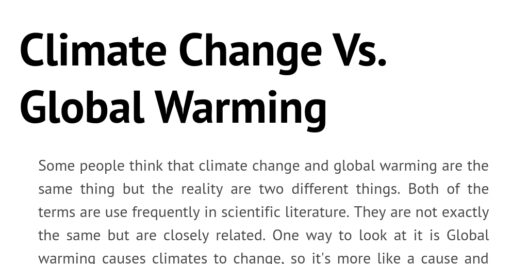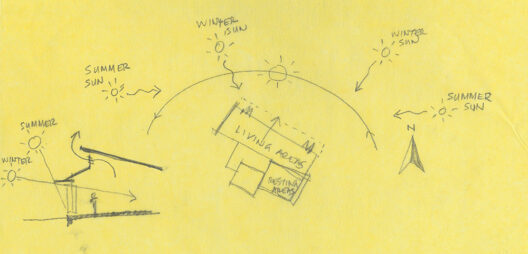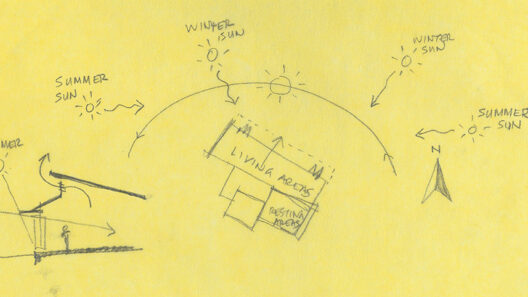As our planet warms, it resembles a fragile orchestra teetering on the brink of dissonance. The conductor, Mother Nature herself, demands harmony in a world where each note symbolizes a facet of our environment. If we, the audience, wish to preserve this magnificent symphony, we must take deliberate steps to mitigate the rapid crescendo of global warming. Surprisingly, it is often the simplest adjustments that yield the most profound impact.
One of the most effective ways to embrace a sustainable future is by re-evaluating our energy consumption. Transitioning from fossil fuels to renewable energy sources is akin to swapping an old, rusty clarinet for a sleek, modern flute. Solar panels and wind turbines represent the crescendo of this transition. Homeowners can invest in solar energy systems or support initiatives to integrate wind energy into local grids. Even small contributions, such as using energy-efficient light bulbs and appliances, help compose a more harmonious energy consumption environment.
Transportation, a significant contributor to greenhouse gas emissions, requires urgent attention. Carpooling or utilizing public transport can be likened to a choir, where voices unite, harmonizing efforts to reduce the overall carbon footprint. Electric vehicles further exemplify the shift towards cleaner travel alternatives. Cycling or walking for shorter trips serves as an effective metaphor for personal empowerment, enabling individuals to reclaim their agency while reducing their environmental impact.
Moreover, rethinking our diet can catalyze substantial environmental benefits. The consumption of animal products, especially beef, produces significant methane emissions and demands vast resources. Adopting a plant-based diet, even just a few days a week, is comparable to shifting from a heavy bassline to a lighter, more melodious tune. Integrating more vegetables and fruits into daily meals, sourcing food locally, and minimizing food waste are all fundamental practices that enable consumers to play a unique role in the climate symphony.
Another compelling instrument in the fight against global warming is afforestation and reforestation. Trees act as nature’s lungs, absorbing carbon dioxide and releasing oxygen in a delicate balance that sustains life on Earth. Planting trees in urban areas can reduce heat and create a cooling effect similar to finding shelter beneath a grand canopy. Community tree-planting initiatives foster a sense of unity and responsibility, intertwining the lives of residents with the vitality of local ecosystems.
Furthermore, promoting sustainable practices in consumer behavior is essential. Frequenting local markets that emphasize sustainable supply chains is akin to procuring tickets for an intimate concert rather than a large, impersonal arena show. By supporting local farmers and producers, individuals contribute not only to the economy but also to the reduction of carbon emissions associated with transportation. Mindful purchasing extends to products made from recycled materials, emphasizing the importance of a circular economy, where waste is minimized and resources are reinvested.
Eco-friendly habits can permeate daily life. Simple actions, like carrying reusable bags, opting for glass containers, or utilizing beeswax wraps, serve as instruments of change in the hand of each consumer. By reducing single-use plastics, we can reduce ocean pollution and protect marine life, allowing nature’s aquatic melodies to thrive once more. Engagement in local environmental advocacy groups further amplifies individual efforts, creating a powerful chorus demanding change at policy levels.
Moreover, education plays a pivotal role in transforming societal perspectives on climate change. Understanding the science behind global warming is akin to grasping the structure of a complex symphony. Schools can incorporate environmental education into their curriculums, ensuring future generations possess the knowledge necessary to navigate and address climate challenges. An informed public forms the foundation for grassroots movements advocating for systemic change, echoing the powerful resolve of a unified community.
Concurrently, fostering a mindset of sustainability requires a conscious shift in corporate responsibility. Businesses should embrace more eco-friendly practices and articulate climate action plans transparently. Companies that prioritize sustainability resonate as role models, inspiring others to follow suit. Consumers, in turn, support ethical businesses, creating a harmonious marketplace where eco-conscious commodification flourishes.
Climate resilience calls for collaboration across borders. Global summits and agreements, like the Paris Agreement, serve as international symphonies where nations pledge to work collectively towards substantial reductions in greenhouse gas emissions. Cooperation and shared responsibility create a powerful cadence, assuring sustainable practices transcend geographical boundaries. Individual nations can bolster their commitments, recognizing energy efficiency and renewable technologies as critical components in the shared pursuit of sustainability.
Finally, advocacy at the local level is paramount. Petitions, community meetings, and outreach campaigns can galvanize public awareness and alert elected officials to the desires of their constituents. Each smaller scale effort contributes to a sweeping movement, reminiscent of a crescendo building into a triumphant finale. Local initiatives, such as promoting green building codes or establishing protected land areas, are essential for safeguarding vital ecosystems and biodiversity.
In conclusion, the fight against global warming is a dynamic interplay of individual actions, collective responsibility, and systemic change. By embracing simple yet effective strategies, we can compose an eloquent symphony dedicated to environmental stewardship. Every choice reverberates, and together, we can create a sustainable future that resonates with harmony and hope. The time to act is now, for our planet’s legacy is defined by our dedication to preservation.







